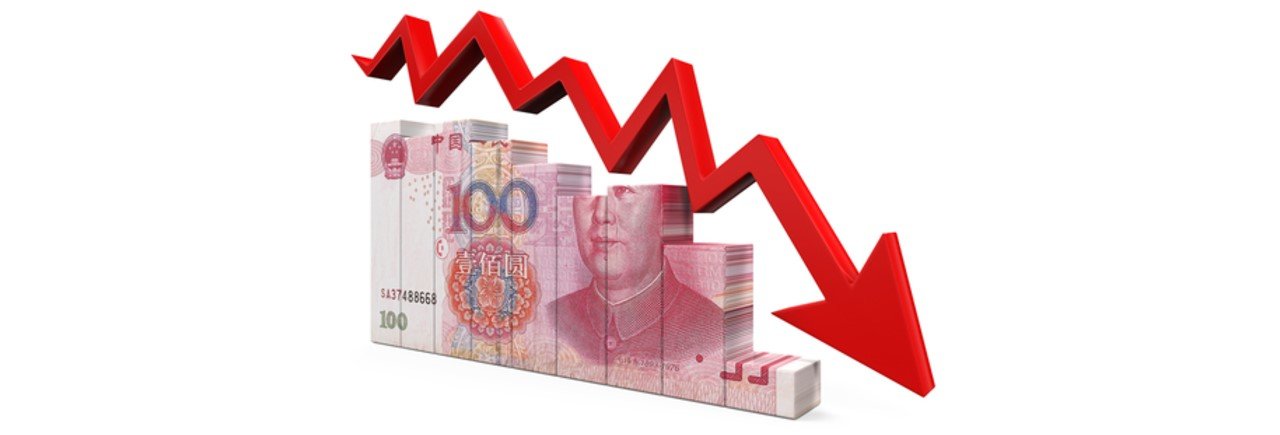

Jan
It is difficult to think of a field more affected by hypocrisy than economics and in the spirit of just that, we are convinced most readers are well aware of the fact that China tends to be portrayed as the “monetary bad guy” for devaluing its currency, with many Western counterparts (from government officials to central bankers) complaining that China has been and is developing an unfair edge over its competition via currency devaluation.
Is China a saint in all of this?
Of course not.
Are there instances in which China deserves to be portrayed as the proverbial bad guy?
Most definitely, from more than troubling aspects that pertain to human rights to legislative unpredictability. We have, in fact, covered most of them through individual articles here on ChinaFund.com. As such, we would like our visitors to never make the mistake of assuming that just because our business is called ChinaFund.com and just because we specialize in Chinese opportunities, we are somehow trying to “paint” China as the epitome of perfection.
That is hardly the case.
While there are indeed instances in which China is behaving in a manner which needs to be condemned, the currency devaluation debate doesn’t deserves to be included in this equation in our view. Is this because we believe China is not devaluing its currency? Most definitely not. On the contrary, we firmly believe that China has devalued its currency in the past so as to gain an economic (monetary) edge, it is more than willing to devalue its currency in the present and that is unlikely to change as far as the future is concerned.
Why, then, do we believe China shouldn’t be publicly shamed for this practice?
One word: hypocrisy.
If this monetary criticism would have come from entities with an impeccable track record when it comes to “fair” monetary policy, our team would have had absolutely nothing whatsoever to comment. Indeed, trying to devalue your way toward an edge isn’t exactly in the spirit of global cooperation and, on the contrary, has been at the root of many large-scale conflicts throughout our troubled history.
As perhaps a textbook example to this effect, the Great Depression of 1929 was followed by countries abandoning the gold standard en masse so as to weaken their currencies and provide a much-needed boost to exports. Unfortunately, things degenerated from there, with “currency wars” leading to “trade wars” and protectionism with everything it encompasses (primarily barriers to trade) and ultimately, yes, World War II. While World War II most definitely had a wide range of complex causes, the economic dimension can be considered the elephant in the room among common denominators time and time again throughout history.
Fast-forward to the present, with it being time to look at who exactly is criticizing China vocally.
On the one hand, of course, the United States. However, does the US have the moral authority to lecture anyone on this matter in light of the fact that in an effort to combat the economic effects of the Great Recession of 2008-2009, they’ve embarked on an impressive currency devaluation mission through measures which ranged from lowering interest rates all the way down to zero to even “printing” money through their Quantitative Easing programs? At the height of Quantitative Easing, roughly 85 billion dollars were created each month and injected into the financial system, or approximately one trillion dollars yearly. To provide additional context, from 1913 (the year in which the third central bank of the US, the Federal Reserve, appeared) up until the Great Recession (in other words, almost 100 years), the monetary base consisted of roughly 800 billion US dollars. To put it differently, more money was “printed” in one year at the height of QE than had existed after almost 100 years of US central banking.
Who else is quick to criticize China? Of course, the European Union. However, again, does it hold the moral higher ground here in light of the fact that its central bank (the European Central Bank) out-did the United States in a binary manner? On the one hand by bringing interest rates in negative territory rather than “just” down to zero and on the other hand, “printing” even more than the Federal Reserve at the height of the ECB’s easing process?
Is China the proverbial “good guy” or even victim in all of this?
Most definitely not.
The ChinaFund.com team is not trying to state that China is somehow the positive character in this story, that would be just as hypocritical as criticism coming from the Fed or ECB. What we are trying to explain is that there are no “good guys” in this entire equation when it comes to sovereign entities and the only victims are the people who end up being affected by the unsustainable system this is transitioning into.
While human beings tend to be quite inapt when it comes to predicting the future, we believe it is fairly safe to assume that at one point or another, something will put an end to the unsustainable worldwide (most certainly not just Chinese!) monetary status quo. Furthermore, when this happens, it is hard to envision it not being a macroeconomic game-changer.
On the one hand, as history tends to show us, this will likely result in at the very least economic destruction on all fronts but on the other hand, opportunities abound for those who were able to position themselves on the right side of such a generational transfer of wealth. Should you or your organization be interested in the latter, the ChinaFund.com team is here to put its expertise as well as non-hypocritical modus operandi at your disposal.
